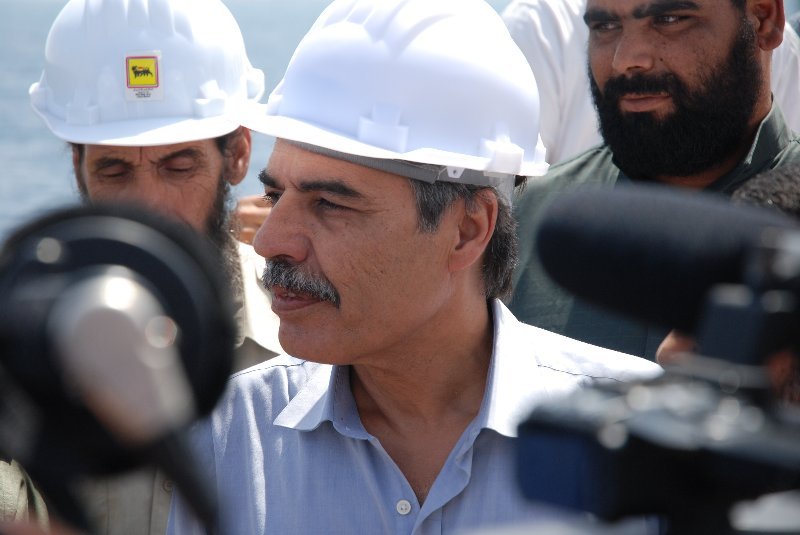 Tripoli
Tripoli
The Roman theatre in Sabratha simmers in the afternoon sun, glowing a warm terracotta. It is a magnificent site as we head west from Tripoli to the Mellitah Oil and Gas Complex. Dating back to the irrepressibly commercial Phoenicians, who founded a trading post here sometime between the fourth and seventh centuries BC, Sabratha is essentially a Roman creation, built in the late second century AD at the outset of the Severan dynasty. Septimius Severus was Africa’s first Roman emperor and he liked to build big. The word imperial scarcely does justice to his finest creation, Leptis Magna, east of Tripoli towards the wreckage of Misratha. Enough pink and green cipollino and brecia marble, set off with black and red Egyptian granite, to satisfy a dictator’s wildest dreams. Only recently Gaddafi was reported hiding vast hordes of ammunition here.
The impossibly romantic setting of the theatre, with an iridescent sea only yards behind the three storey, 25 metre scaenae frons that positively towers above the stage, is a powerful reminder of ancient power plays on the Barbary coast and a pointer, perhaps, towards happier days for Libya’s woefully under-developed tourism sector. Gracious marble reliefs on the stage front depict the three Muses, the goddess Fortuna (oil, oil, oil), Mercury with the infant Dionysus, the Judgement of Paris, Hercules, and personifications of Rome and Sabratha joining hands alongside soldiers. In 1937, almost 1,800 years after its birth, another megalomaniac reinaugurated the theatre as part of a bombastic bid to recreate the Roman empire. His name was Mussolini.
With Sabratha behind us, we pull up at the vast oil and gas complex, where latter-day Romans in the form of the Italian energy giant ENI are making money while the sun shines. Representing the National Transitional Council, Dr Ali Tarhuni (pictured), who recently added the position of deputy prime minister to his oil and finance portfolios, is taking back control of the site from rebel forces who moved in to secure it three weeks ago. Nothing was looted, say the employees.
Gas has been flowing to Italy 24 hours a day throughout the revolution, but oil has been shut down at Mellitah. The southern field of Al Feel, which supplies around 140,000 barrels a day, is not yet operational due to the flight of foreign workers and lingering question marks about security in the south. It’s a matter of days, not weeks, the government says.
Hard-hatted Tarhuni cuts a briskly impressive figure. He says:
Libya needs those energy groups back as soon as possible, which is why Tarhuni is at pains to reassure the international community: “Our message to the world: your investments are safe in Libya.”“We’re here to show the world that the revolutionaries are not only capable of conquering Gaddafi and liberating our dear land, but also protecting our institutions and we’re capable of managing our own country. It’s a great day to see the country getting back to normal – gradually but surely.”
And with that, he’s whisked off in a swish black Mercedes S350 with tinted windows. “I know, I know, it’s just a car we inherited,” says an official.
Trade has always been centre-stage in this absorbing slice of North Africa. For the Phoenicians, it was all about agriculture: figs, olives and grapes. The Romans pillaged the provinicia Tripolitania for olive oil and wild animals to satisfy the bloodlust of circus-goers (Titus marked the inauguration of the Colosseum by dispatching 9,000 animals into the arena to fight the gladiators; Trajan had 2,246 slaughtered in one day).
Today it’s all about the oil. Whatever happens next here, black gold will be at the centre of the new Libya’s story. Get it right, and Libyans will never look back.






Comments